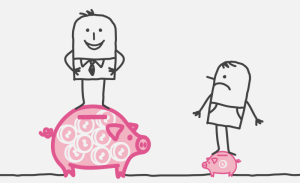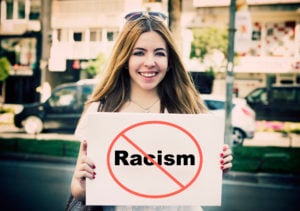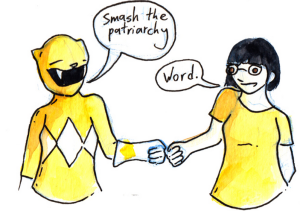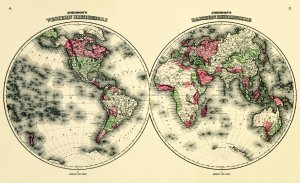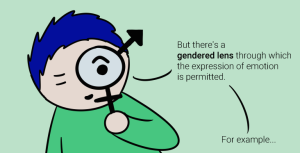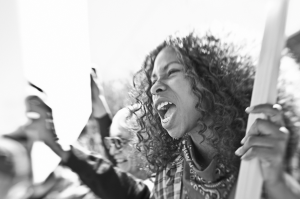Originally published on BenIrwin.me and republished here with the author’s permission.
Financial advisor and evangelical Christian Dave Ramsey probably wasn’t expecting this much pushback when he shared a piece contrasting the habits of the rich with those of the poor.
In her response on CNN, Rachel Held Evans noted that Ramsey and Corley mistake correlation for causality when they suggest (without actually proving) that these habits are the cause of a person’s financial situation. (Did it never occur to them that it might be the other way around?)
Ramsey fired back, calling the pushback “immature and ignorant.” This from a guy who just made twenty sweeping assertions about 47 million poor people in the US — all based on a survey of 361 individuals.
That’s right. To come up with his twenty habits, Corley talked to just 233 wealthy people and 128 poor people. Ramsey can talk all he wants about Corley’s research passing the “common-sense smell test,” but it doesn’t pass the “research methodology 101” test.
To balance the picture a bit, I wanted to take a fact-based look at twenty things the poor do on a daily basis.
1. Search for Affordable Housing
Especially in urban areas, the waiting list for affordable housing can be a year or more.
During that time, poor families either have to make do with substandard or dangerous housing, depend on the hospitality of relatives, or go homeless. (Source: New York Times)
2. Try to Make $133 Worth of Food Last a Whole Month
That’s how much the average food stamp recipient gets each month.
Imagine trying to eat well on $4.38 per day.
It’s not easy, which is why many impoverished families resort to #3. (Source: Kaiser Family Foundation)
3. Subsist on Poor Quality Food
Not because they want to, but because they can’t afford high-quality, nutritious food.
They’re trapped in a food system that subsidizes processed foods, making them artificially cheaper than natural food sources.
So the poor are forced to eat bad food — if they’re lucky, that is. (Sources: Washington Post; Journal of Nutrition, March 2008)
4. Skip a Meal
One in six Americans are food insecure.
Which means (among other things) that they’re sometimes forced to go without eating. (Sources: World Vision, US Department of Agriculture)
5. Work Longer and Harder Than Most of Us
While it’s popular to think people are poor because they’re lazy (which seems to be the whole point of Ramsey’s post), many of the poor actually work longer and harder than the rest of us.
More than 80% of impoverished children have at least one parent who works; 60% have at least one parent who works full-time.
Overall, the poor work longer hours than the so-called “job creators.” (Source: Poverty and Learning, April 2008)
6. Go to Bed Three Hours Before Their First Job Starts
Number 15 on Ramsey and Corley’s list was, “44% of [the] wealthy wake up three hours before work starts vs. 3% of [the] poor.”
It may be true that most poor people don’t wake up three hours before work starts.
But that could be because they’re more likely to work multiple jobs, in which case job #1 means they’re probably just getting to bed three hours before job #2 starts. (Source: Poverty and Learning, April 2008)
7. Try to Avoid Getting Harmed by Someone They Love
While domestic violence afflicts rich and poor alike, poor women have fewer options for escaping an abusive partner.
According to some estimates, half of all homeless women in America ran away to escape domestic violence. (Source: National Coalition for the Homeless, 2009).
8. Put Themselves in Harm’s Way, Only to Be Kicked to the Streets Afterward
How else do you explain 63,000 homeless veterans? (Source: US Department of Veterans Affairs.)
9. Pay More Than Their Fair Share of Taxes
Some conservative pundits and politicians like to think the poor don’t pay their fair share, that they are merely “takers.”
While it’s true the poor don’t pay as much in federal income tax – usually because they don’t earn enough to qualify – they do pay sales tax, payroll tax, and so on.
In fact, the bottom 20% of earners pay twice as much in taxes (as a share of their income) as do the top 1%. (Source: Institute on Taxation & Economic Policy, January 2013)
10. Fall Further Behind
Even when poverty is the result of poor decision-making, often it’s someone else’s choices that make the difference.
If you experience poverty as a child, you are 3-4 times less likely to graduate high school. If you spend your entire childhood in poverty, you are five times less likely to graduate.
Which means your future has been all but decided for you. (Sources: World Vision, Children’s Defense Fund, Annie E. Casey Foundation)
11. Raise Kids Who Will Be Poor
A child’s future earnings are closely correlated to their parents’ earnings.
In other words, economic mobility – the idea that you can claw your way out of poverty if you just try hard enough – is, more often than not, a myth. (Sources: OECD, Economic Policy Institute)
12. Vote Less
And who can blame them?
I would be less inclined to vote if I didn’t have easy access to the polls and if I were subjected to draconian voter ID laws that are sold to the public as necessary to suppress nonexistent voter fraud. (Source: The Center for Voting and Democracy)
13. When They Do Vote, Vote Pretty Much the Same as the Rest of Us
Following their defeat in 2012, conservatives took solace by reasoning that they’d lost to a bunch of “takers,” including the poor, who voted for Democrats because they want free handouts from big government.
The reality is a bit more complex.
Only a third of low-income voters identify as Democrats, about the same for all Americans, including wealthy voters. (Sources: NPR, Pew Research Center)
14. Live with Chronic Pain
Those earning less than $12,000 a year are twice as likely to report feeling physical pain on any given day. (Source: Kaiser Health News)
15. Live Shorter Lives
There is a 10-14 year gap in life expectancy between the rich and the poor.
In recent years, poor people’s life expectancy has actually declined – in America, the wealthiest nation on the planet. (Source: Health Affairs, 2012)
16. Use Drugs and Alcohol Pretty Much the Same As (Or Less Than) Everyone Else
Despite the common picture of inner city crack houses, drug use is pretty evenly spread across income groups.
And rich people actually abuse alcohol more than the poor. (Source: Poverty and Learning, April 2008)
17. Receive Less in Subsidized Benefits Than Corporations
The US government spends around $60 billion on public housing and rental subsidies for low-income families, compared to more than $90 billion on corporate subsidies.
Oil companies alone get around $70 billion.
And that’s not counting the nearly $60 billion a year in tax breaks corporations enjoy by sheltering profits offshore. Or the $700 billion bailout banks got in 2008. (Source: Think By Numbers)
18. Get Themselves Off Welfare as Soon as Possible
Despite the odds, the vast majority of beneficiaries leave the welfare rolls within five years.
Even in the absence of official welfare-to-work programming, most welfare recipients enroll in some form of vocational training.
Why?
Because they’re desperate to get off welfare. (Source: US Department of Health and Human Services)
19. Have About the Same Number of Children as Everyone Else
No, poor people do not have loads of children just so they can stay on welfare. (Source: US Department of Health and Human Services)
20. Accomplish One Single Goal: Stay Alive
Poverty in America may not be as dire as poverty in other parts of the world, but many working poor families are nonetheless preoccupied with day-to-day survival.
For them, life is not something to be enjoyed so much as endured.
[do_widget id=’text-101′]
Ben Irwin is a husband, father, author, and blogger. You can check out his website here, find his books here, and follow him on Twitter @benirwin.
Search our 3000+ articles!
Read our articles about:
Our online racial justice training
Used by hundreds of universities, non-profits, and businesses.
Click to learn more


